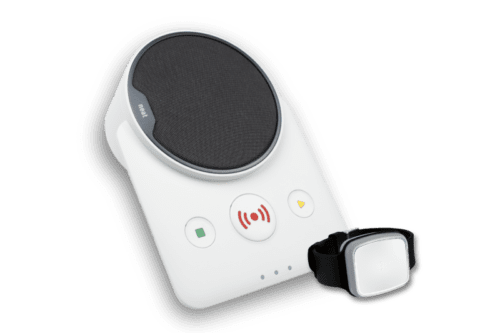
Every May is the month of Arthritis Awareness, and as is our custom, we have our resident GP, Dr. Hilary Jones, to give us some helpful tips on how to cope. Don’t miss his helpful video at the end of the article!
When you go down the aisle in the grocery store or pharmacy looking for pain relievers, do you notice how many promise relief from arthritis? There is a good reason for that. According to a survey conducted by The Telegraph, 76% of respondents mentioned that arthritis prevents them from living life to the fullest. That is more astounding when you consider that, according to the NHS, “in the UK, millions of people have arthritis. It affects people of all ages, including children.”
This means that many people are suffering from arthritis across all age groups and all spectrums and types of arthritis. It makes sense now that products on pharmacy shelves are geared towards relieving arthritis pain. Often, medicine alone is not enough to cope with symptoms of the condition.
Arthritis and the Symptoms
Before discussing ways to cope, it is important to understand a little more about what it is and its symptoms. MedicineNet defines arthritis as, “a joint disorder featuring inflammation. A joint is an area of the body where two different bones meet. A joint functions to move the body parts connected by its bones. Arthritis literally means inflammation of one or more joints.”
Inflammation in the joint causes joint pain. According to the same source, there are over 100 identified types of arthritis. The condition is most common in those over 40 and is common in women or those with a family history of the disease, as detailed by the NHS.
Arthritis is caused by many things. Some examples of causes include direct and indirect effects of infections, injury, and a misdirected immune system with autoimmunity. Your doctor can diagnose the severity and cause using X-rays and other techniques. How do you know if you have it?
Outside of your doctor’s diagnosis, you may notice some of the following symptoms. Symptoms may vary depending on which joint or joints the arthritis is located in.
- Joint pain, tenderness, stiffness
- Inflammation in and around the joints
- Restricted movement of the joints
- Warm, red skin over the affected joint
- Weakness and muscle wasting
- Loss of hand grip and grip strength
There are different kinds of arthritis with varying causes and effects, other symptoms may be present. Fever, gland swelling, weight loss, fatigue, feeling unwell, and experiencing abnormal symptoms in the lungs, kidneys, and heart are examples of this.
5 Best Ways to Cope with Arthritis
Thus, seeing a doctor is the best way to get a detailed and official diagnosis if you are unsure that you have arthritis. Or to confirm a previous diagnosis. These potential symptoms can stop you from enjoying life to the fullest due to pain and a lack of mobility. How do you cope with arthritis in order to live a full life? Below are five ways to help.
1. Get Help Early
The longer you go with this chronic condition, the harder it can be to manage. As soon as you think you have it or get diagnosed with it, get help. This includes a plan of relief from your doctor, which may include medication to reduce inflammation and pain, but also a plan for dealing with the mental stress as well.
Arthritis can change how you physically function, so a mental healthcare provider can help you learn to manage stress. A chronic condition can cause and help you develop a positive perspective so you are in control of your life and not controlled by the condition.
Places you may go to seek this help include support groups with other people who have the same issues and can help you cope. Plus, the right mental healthcare provider can help you manage any depression that may come with this frustrating chronic condition.
2. Routines
Because arthritis can affect your daily routine, it is important to create new routines so you have some structure and feel a sense of control and liveliness. This can include stretching in the evening so you don’t feel stiff in the morning, adjusting your position frequently at work or while sitting for long periods, taking frequent breaks from tasks, or standing and walking around every half hour.
In addition, you may give yourself time to do things such as make meals, prepare for bed, and prepare for work. Creating new routines will help you cope and live a more fulfilling life.
3. Lifestyle Changes
Being overweight and smoking can cause arthritis to worsen. Losing weight incrementally and quitting smoking help ease the pain of the condition. Plus, you can try to incorporate these five foods that help with arthritis.
4. Exercise
You will not run a marathon. In fact, there are certain exercises that you will want to avoid. The list below shows that.
- Running
- Jumping
- Tennis
- High-impact aerobics
- Repeating the same movement, such as a tennis serve, again and again
Anything that is going to put extra stress on the joint is not beneficial. Instead, it will make the pain worse. However, there are ways to build muscles around the affected joints without affecting the joints. Plus, stretching and movement can decrease pain, increase your range of motion, and make muscles stronger to increase endurance. A physical therapist can help you with these. In general, exercises like water exercises, walking, or cycling are good, low impact exercises to consider.
5. Medication
Medication is not a magic bullet to treat arthritis. It is part of a larger plan that includes some of the points. In some cases, over-the-counter medications and creams can help reduce or eliminate pain that may come from doing activities like gardening after being inside all winter. However, you should avoid trying to overmedicate with over-the-counter medications, as they do have the potential for negative side effects.
Talk to your doctor if you find yourself using over-the-counter medications frequently. In addition, your doctor may prescribe medication depending on the type and severity of your arthritis. It is wise to discuss with your doctor on how to integrate medication.
Conclusion
When combined, these coping mechanisms can help you lead a fuller life with arthritis. By taking care of your mental and physical health, making routine and lifestyle changes, exercising, and working on a plan for medication, you are treating the condition and the potential ripple effects it can cause in your life.
This can make life more enjoyable and allow you to do things you love without having to feel stuck or like a victim of the disease. That in itself is a powerful feeling. At Telecare24, we want you to live a fulfilled life.
Contact us today to see how our products can further allow you to live a better life with arthritis. Moreover, if you find this article informative, please check out our blog for more useful information like this.




